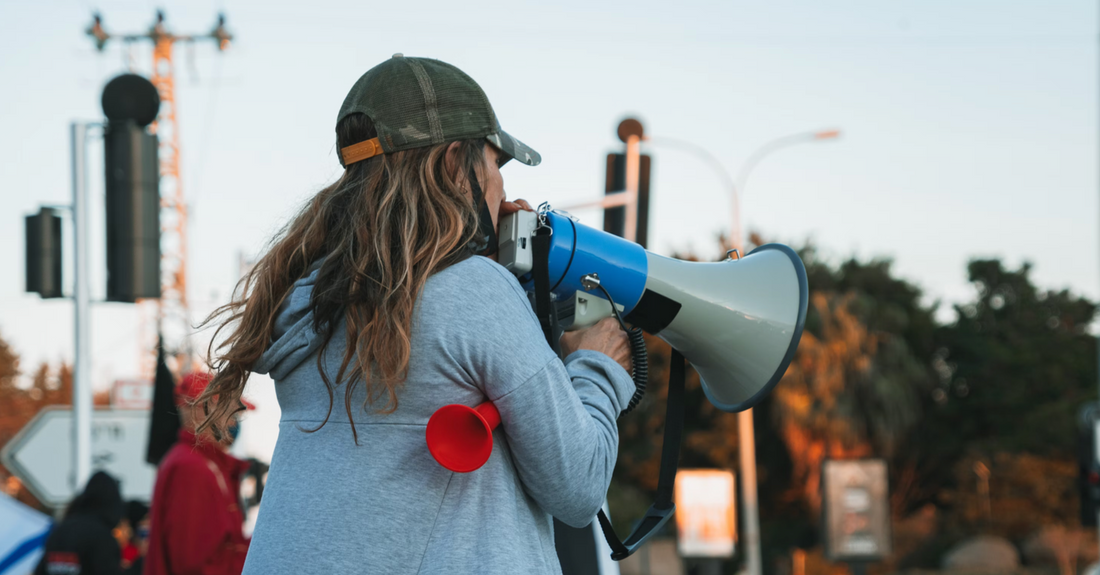Declaring yourself an artist, from my experience, takes time and a lot of courage. We often skirt around the statement ‘I am an artist’, suppressing our true selves by verbalising:
‘I’m not a professional artist;
‘I never went to art school’
‘It’s just a hobby’.
Or simply skipping over the topic completely.

Why do we struggle saying we are an artist?
Well for a start there are a lot of negative associations around the role of an artist. Some may see it as an irresponsible job that can’t guarantee an income. There are stereotypes of addiction, mental health, promiscuity, and being a bit off the wall, not fitting in with the rest of society. So by expressing your creativity to others we risk misunderstanding, judgement and a feeling of isolation.
Some practising artists that are still working on their craft may fear they are not talented, so don’t have the confidence to claim the role of an artist.
For a long time being an artist was not my full time job, and this held me back from using the descriptor artist as my primary role. Instead I’d introduce myself as an IT Project Manager, because this was a much easier conversation to navigate.
Maybe with goals not achieved, such as a solo show, a person may feel they don’t have the accolades to call themselves an artist.
And then quite often if you pluck up the courage to announce yourself as an artist, people’s responses can really knock your confidence. In response I’ve heard ‘but what do you do for a living’ or ‘that’s a nice hobby’.

Why it's important to say 'I'm an artist'
I believe it’s important to proclaim yourself as an artist. For a start, what we believe shapes our thoughts, and our words, and leads to actions. If we can put our creative ambitions into words and share them with others we are much more likely to reach our goals.
Especially when meeting new people, you don’t know who you are speaking with or who they know. By keeping your dreams and ambitions to yourself, you are limiting your opportunities. I’ve had so many doors open due to casual conversations with people who know others that are in the creative field or looking to purchase art.
The more you talk about yourself as an artist, the more you learn to articulate your creative practice and future goals. This really helps clarify in your own mind where you want to go as an artist and why. This is a lot more challenging to work out on your own. By having conversations, the back and forth will challenge your thinking and narrow down your interests.

Exercises to build your confidence
If you’re still stuck in the fear of opening up that conversation with other people there are a few exercises that can help build your confidence.
Journaling will help with blockers if it’s a confidence problem declaring yourself as an artist. It’s helpful to ask questions such as why am I not an artist? What do I believe about artists? Often when you ask these questions you may notice a particular person from your past crops up. Maybe it was your art school teacher from the past that told you you’re not talented, or a parent declaring artists as poor. It’s important to unpack where these negative beliefs come from so you can start challenging them.
Affirmations are a great way to turn negative beliefs into new ways of thinking.
For example, if one of the blockers ‘artists are poor, you could write down ‘There are many rich living artists’. Once you have a list of 5 affirmations you can repeat these daily. What’s amazing is that once your brain starts taking on these new positive beliefs, you will look for evidence to confirm those beliefs. So you’re more likely to apply for opportunities, look for possibilities and increase your confidence in yourself as an artist.
If you are struggling to articulate what you do as an artist and why, spend some time with this, so your words will flow more easily.
A good exercise to try is the 5 whys. For example, you paint trees as an artist, ask yourself why. Take the next answer, which might be I love nature, ask yourself why you love nature. Then keep repeating, you will get to the why of your creativity. This may take a few weeks to really get to the bottom of, take your time and treat it with a healthy curiosity.
Since having the confidence and practice to declare myself as an artist it has opened up many opportunities and interesting conversations. I still get some odd responses but it’s much easier to shrug those off now. Not everyone will understand your artistry but once you engage your people it’s very satisfying to talk to people on your wavelength.

The FREE online art community that inspires confidence:
Art Hub a nourishing, inspiring and supportive membership for artists to make more authentic art.
We are so passionate about welcoming you into an art community that's friendly and fun! Together we will..
- Learn how to be more authentic to uncover your unique style of art
- Inspire you with artists and art genres in a digestible format
- Build confidence with art techniques
- Connect with other artists
- Express joy together with art challenges and live workshops
- Support each other through difficulties and celebrate successes
Completely FREE to join on Facebook:
https://www.facebook.com/groups/arthubcommunity/

